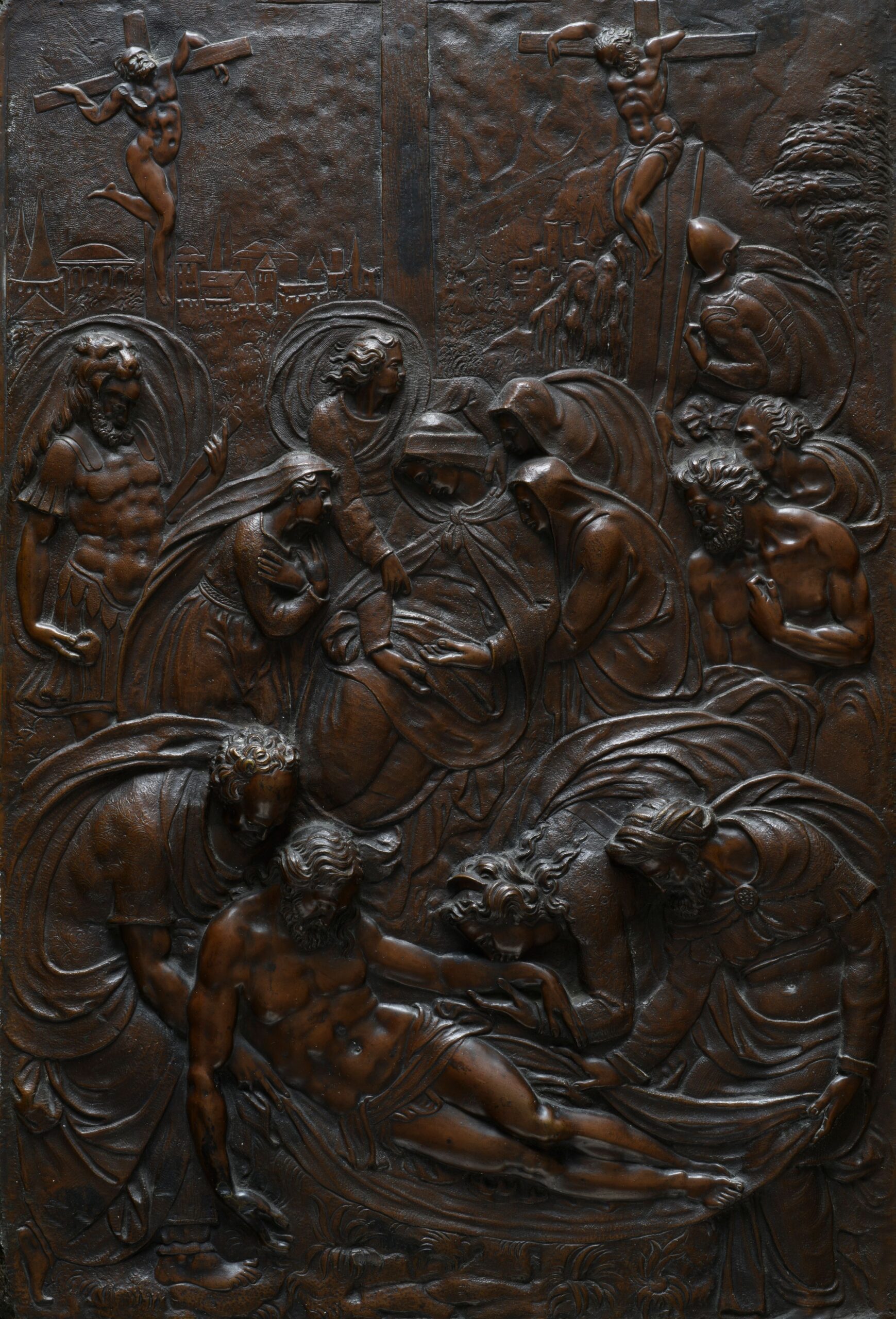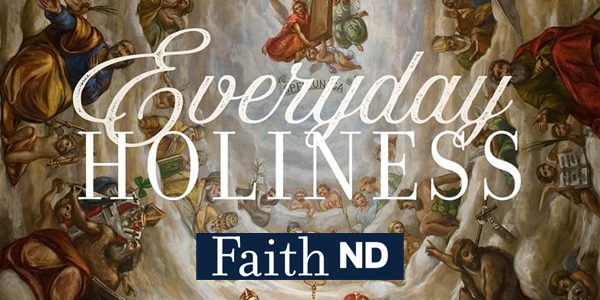Finality of the Crucifixion
Robin Jensen, Patrick O’Brien Professor of Theology, director of Notre Dame’s Master of Theological Studies, and teacher of the history of Christian art, contemplates Deposition from the Cross, a 16th-century bronze cast relief sculpted by Guglielmo della Porta. If we look closely beneath the patina and the remains of the black lacquer finish, we can discern the human figures in the composition.
The scene is based on the story of Christ’s Deposition From the Cross. The sculptor has presented this in three distinct and carefully balanced tiers of action. In the foreground, three disciples attend to Christ’s body, beginning the hurried preparations for burial before the Sabbath. Immediately above them, Mary extends her arms as if yearning to reach out and embrace her beloved child. Disciples surround Mary, ministering to her in her hour of sorrow. In the background are Christ’s empty cross and the two crucified thieves. The rounded human forms and swirling garments overlap and draw the eye around the composition, creating a sense of fluid activity while at the same time stable and solemn.
Holy Saturday is a day of grief for all who loved Jesus. On this day, Christ’s followers absorbed the shock and finality of the crucifixion. They took Christ down from the cross and cleansed, wrapped, and prepared his body for burial. Everything felt real, final, and permanent. They did not know what would soon happen.
Christ did not defeat death by merely touching it for only a few brief moments. He was fully human in every respect except for sin, and as such, he embraced death in its fullness so that he could overcome it once and for all.
On this day of waiting, we join those who loved Jesus and grieved his loss. Yet we trust that a marvelous gain comes through this loss. And we remember what Christ taught us through his life and death: “My grace is sufficient for you, for my power is made perfect in weakness.”
This Lent, ThinkND invites you to join FaithND and the Raclin Murphy Museum of Art for a journey of Lenten discovery through some of the most significant liturgical paintings in the Raclin Murphy collection, challenging you to contemplate prayer, fasting, sinfulness, mercy, grace, and God’s infinite love from the perspectives of the artist’s gaze. To subscribe to the FaithND Daily Gospel Reflection visit faith.nd.edu/signup.

For closer viewing of this work through the digital collections of the Raclin Murphy Museum of Art, please click here.
More Like This
Related PostsLet your curiosity roam! If you enjoyed the insights here, we think you might enjoy discovering the following publications.

